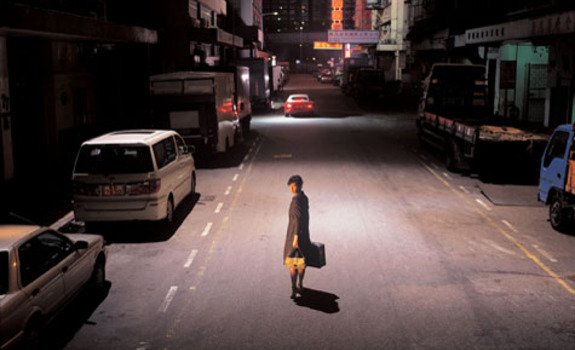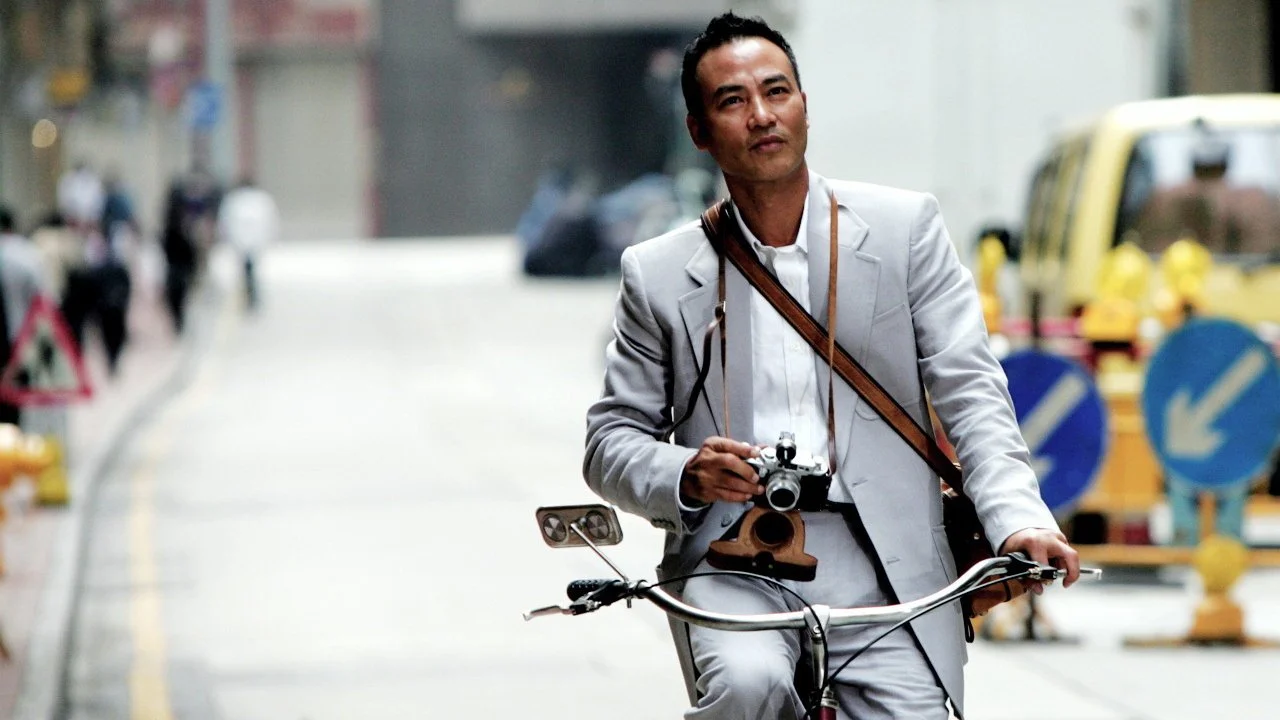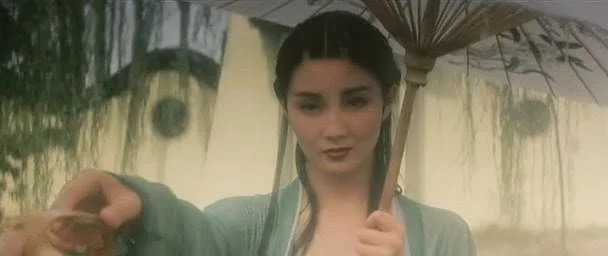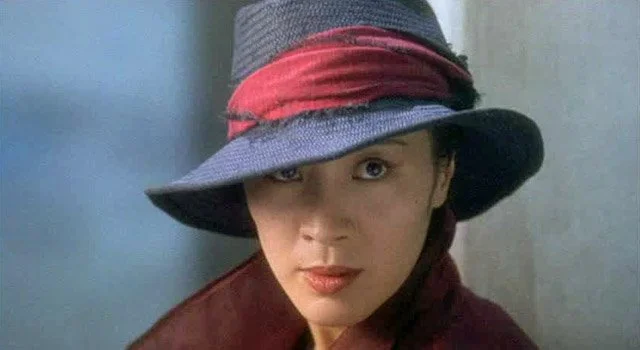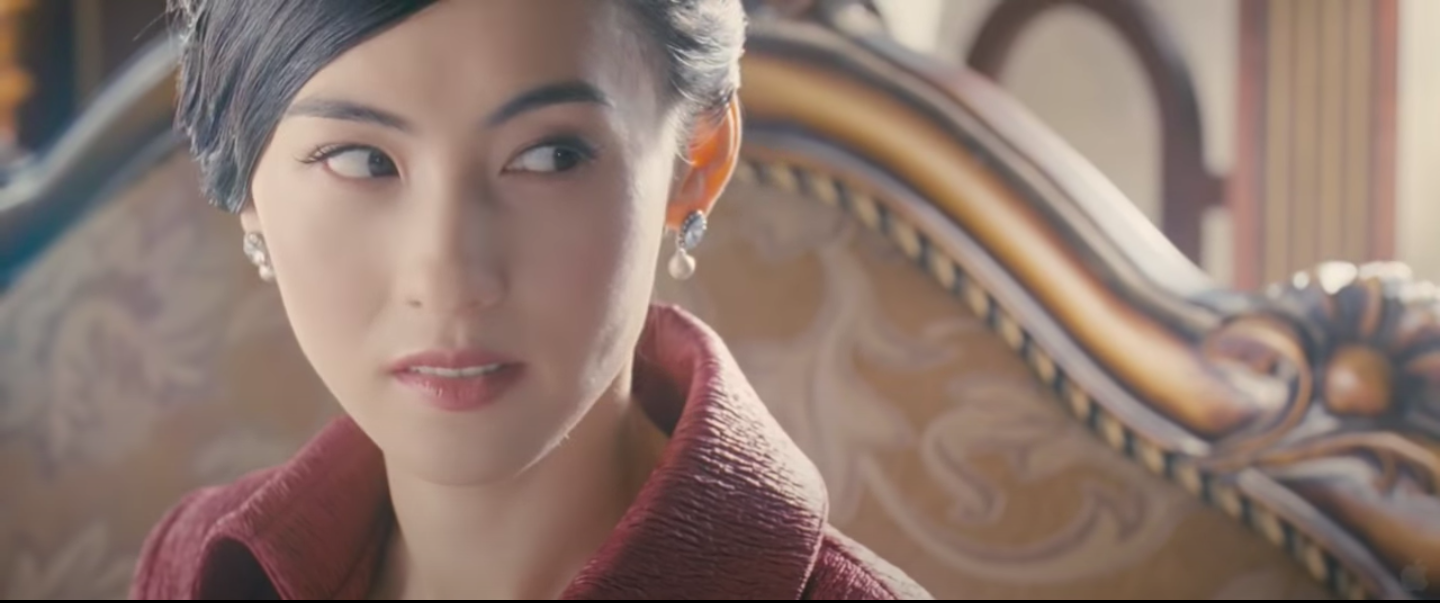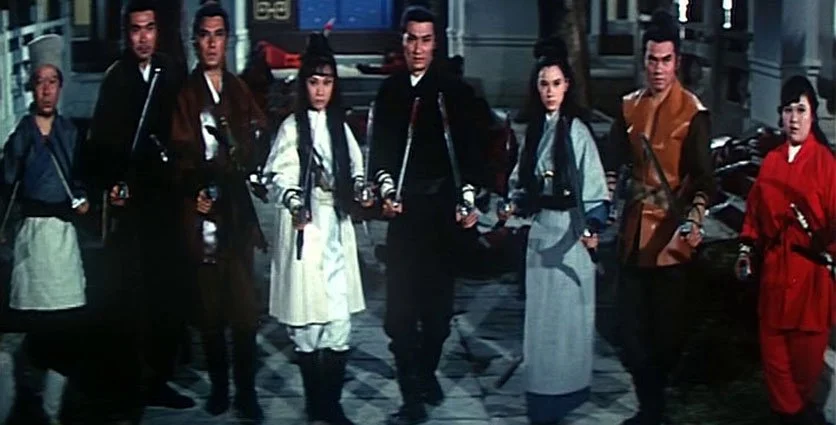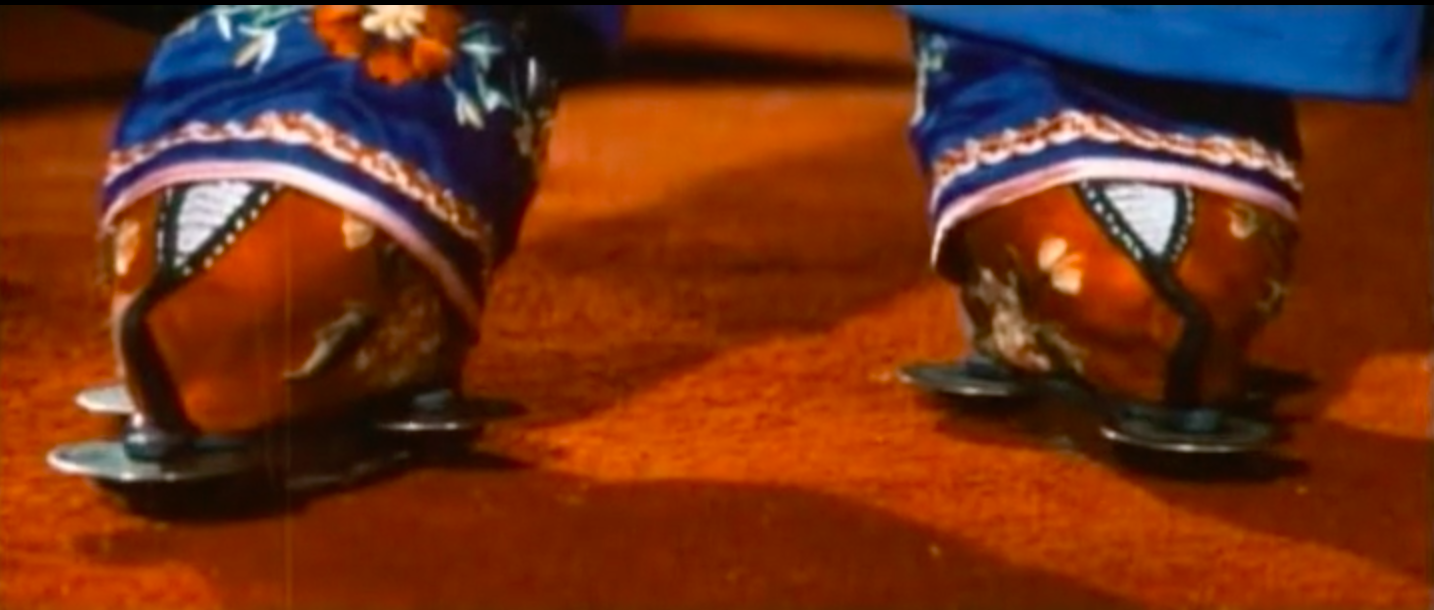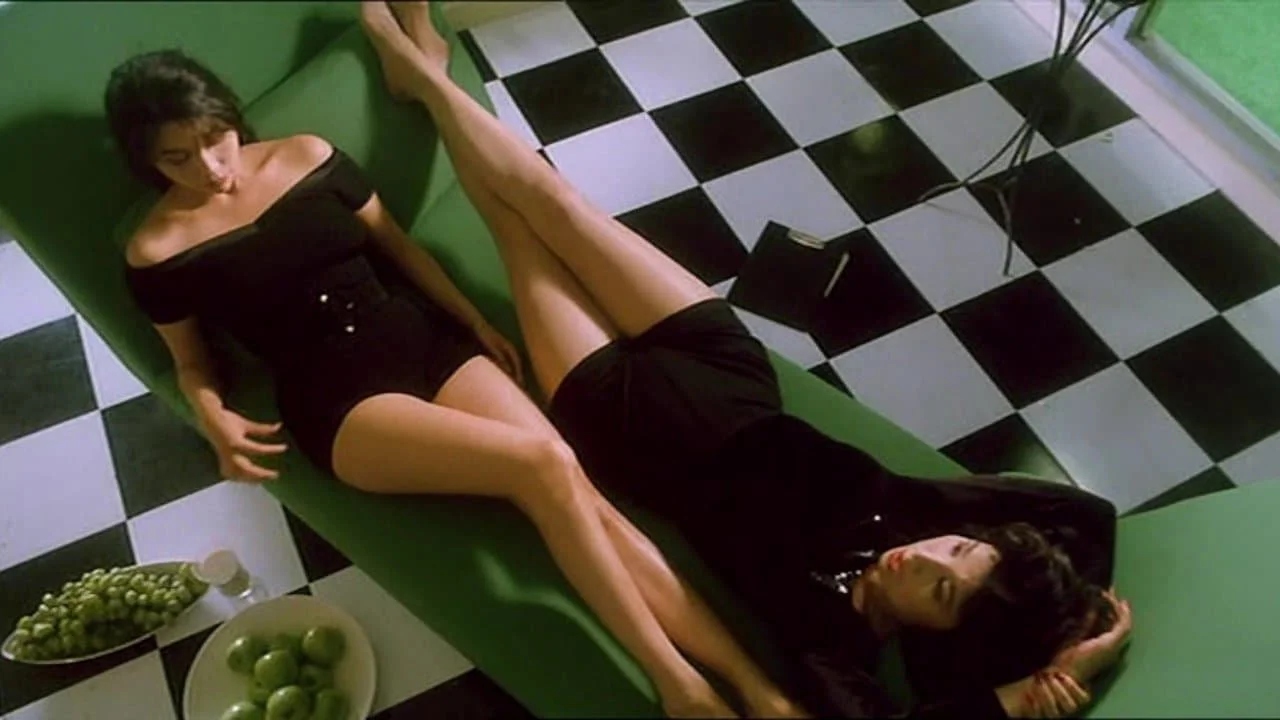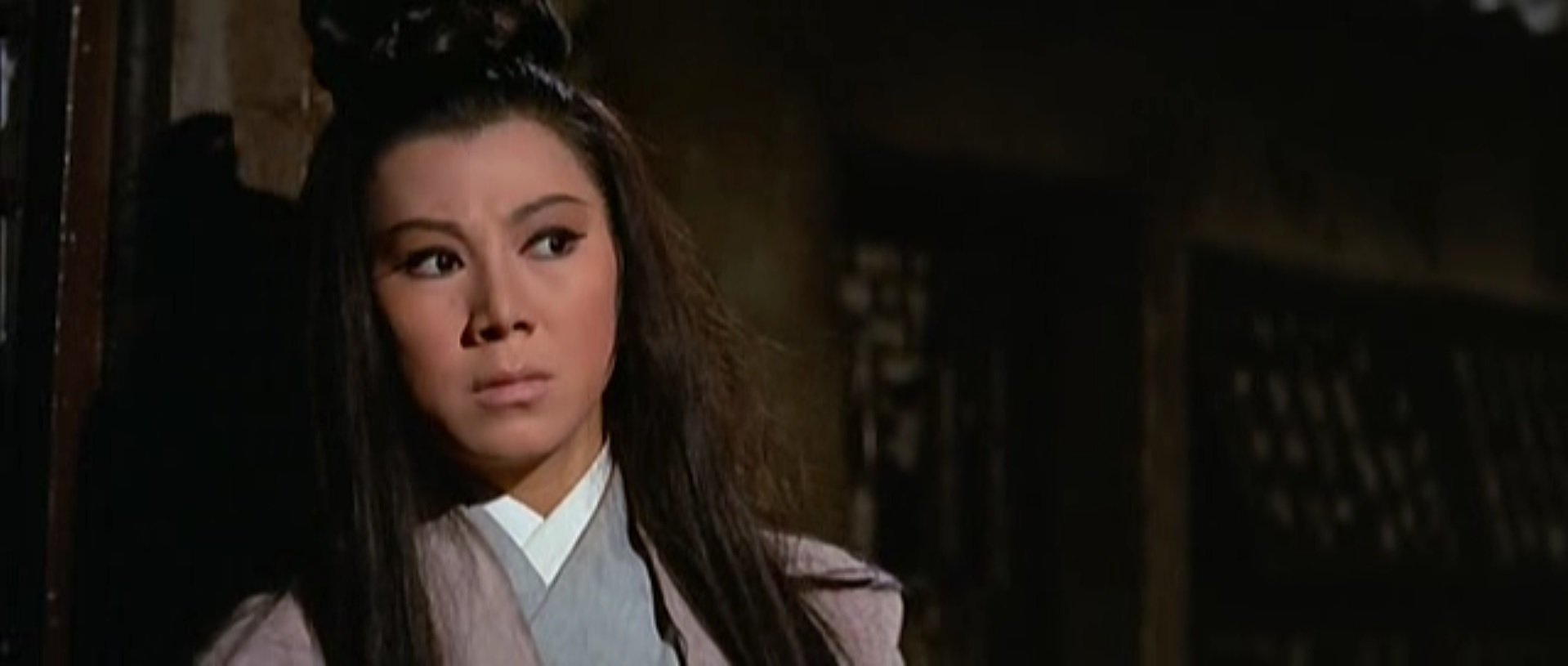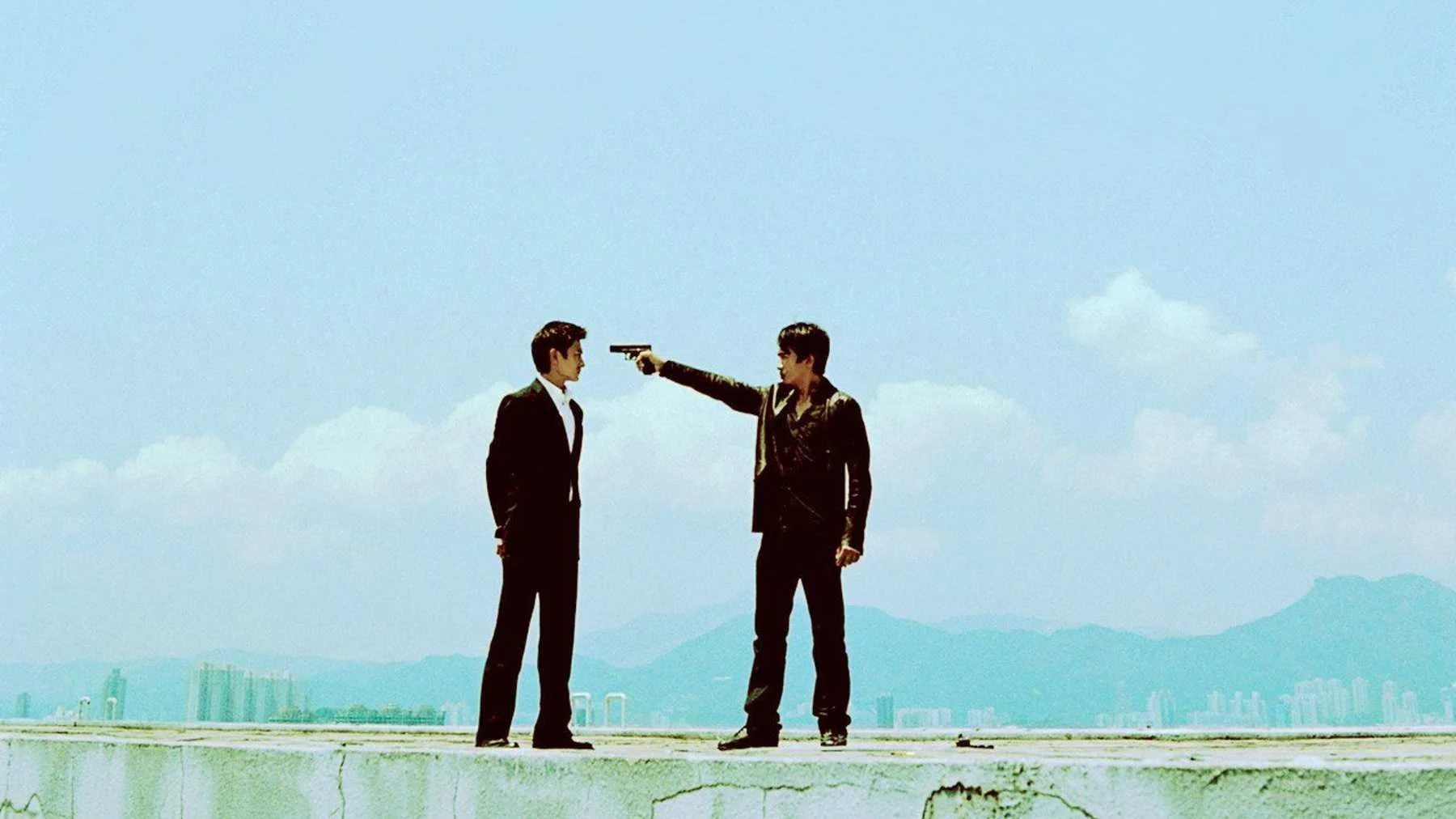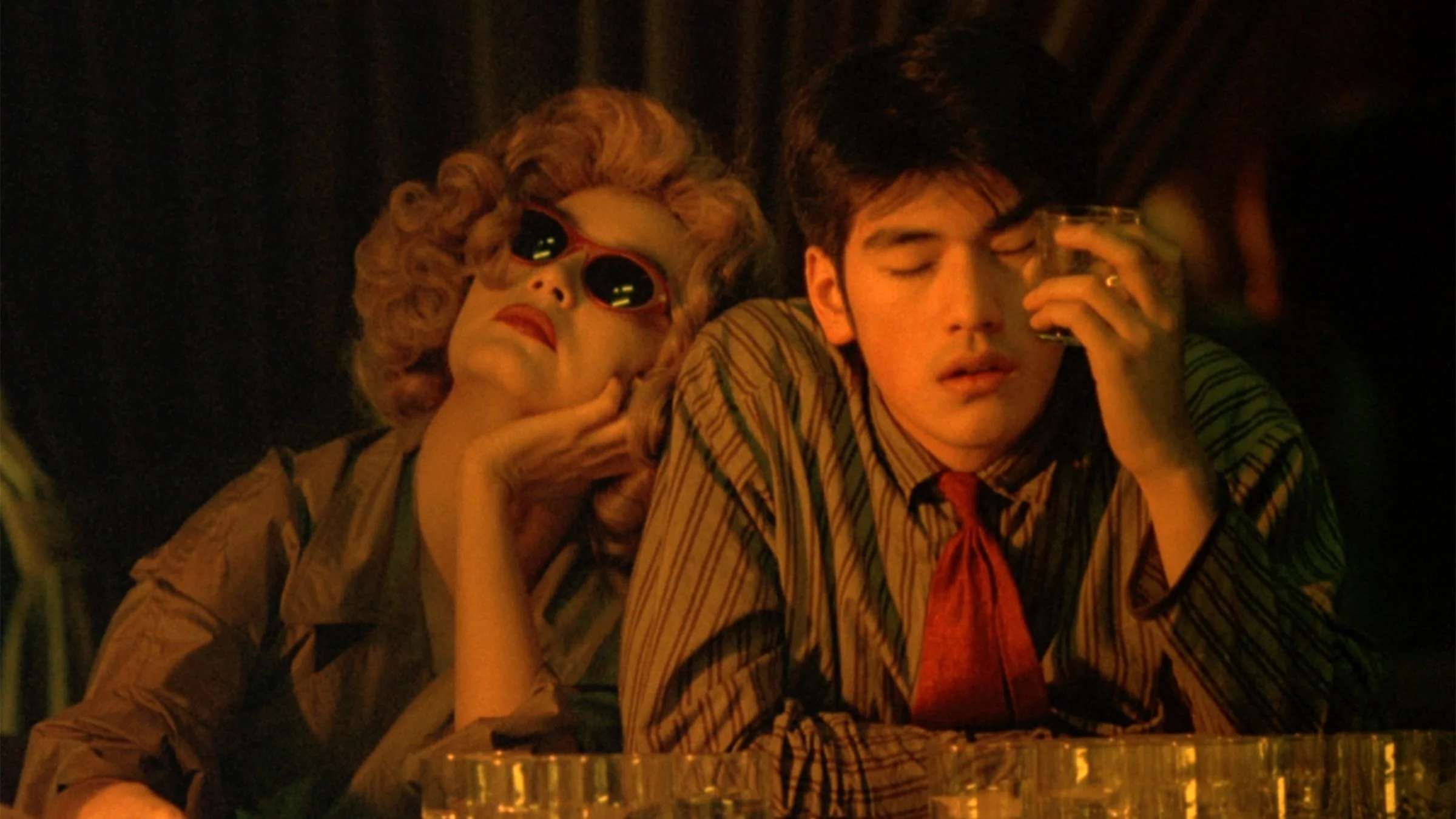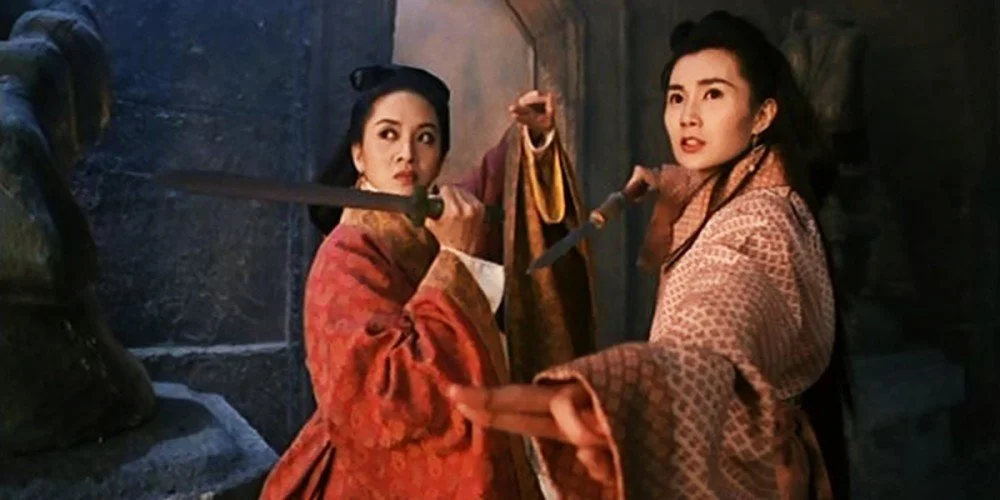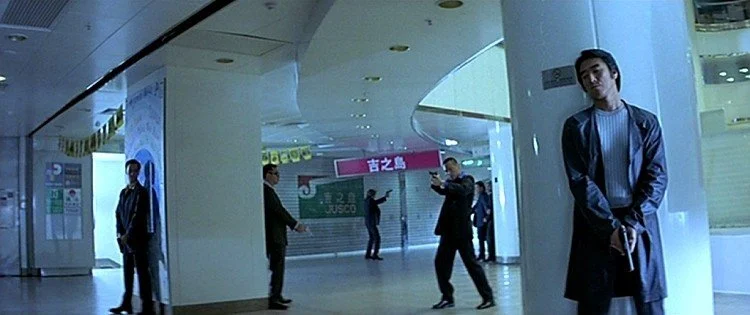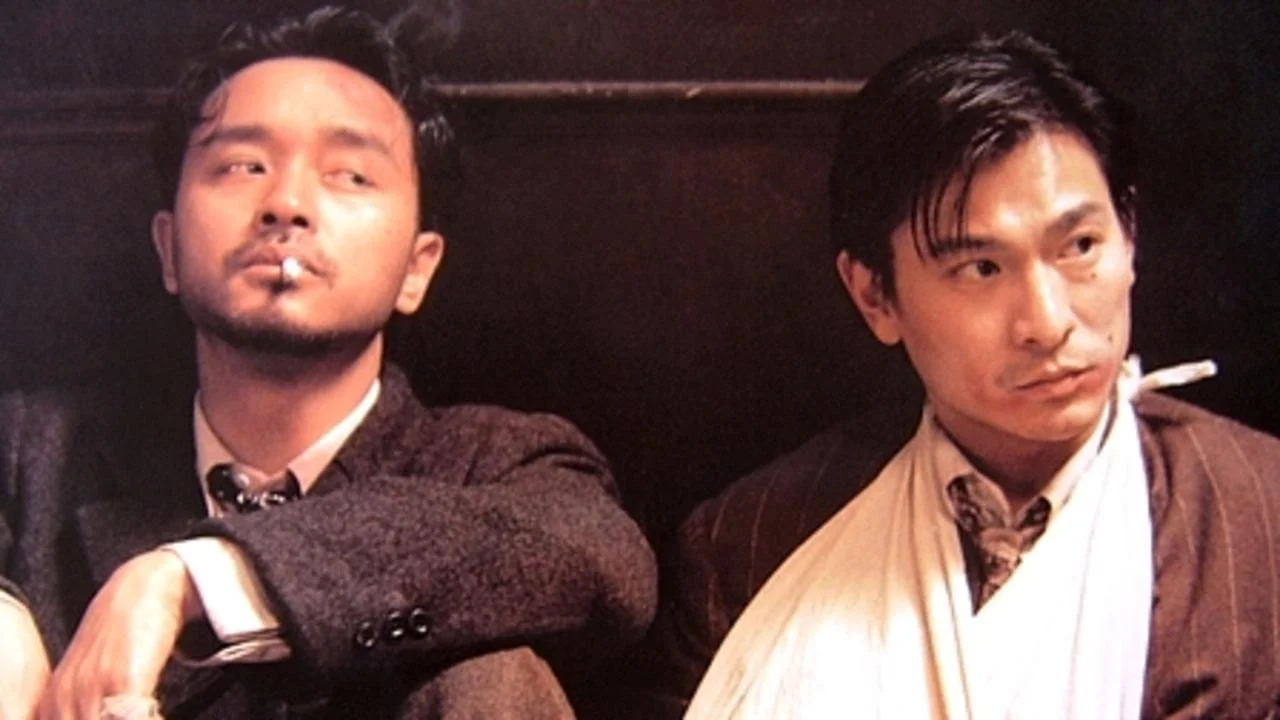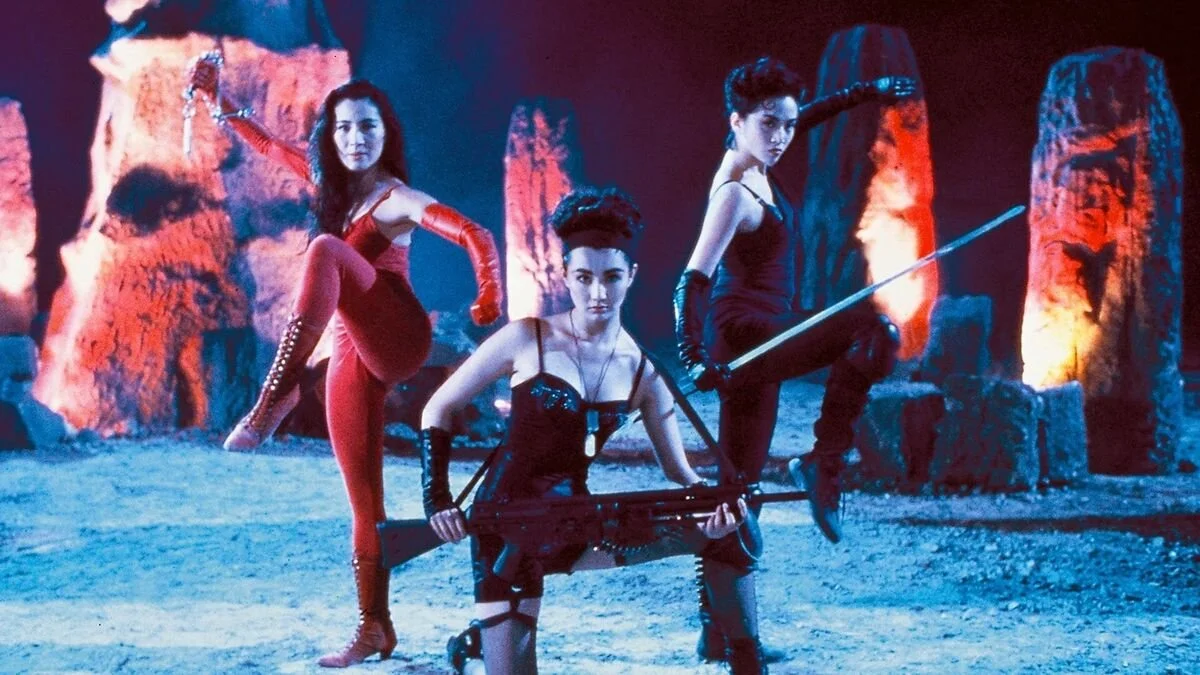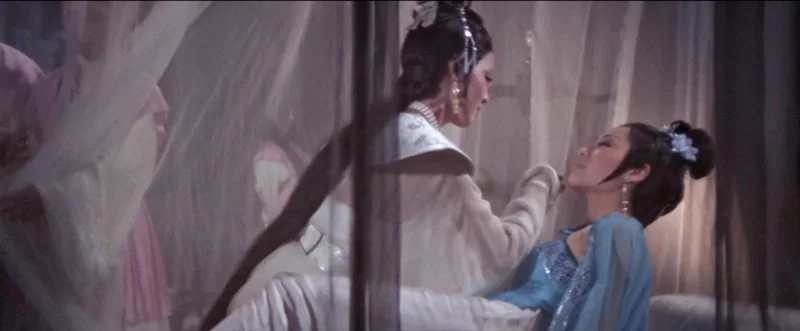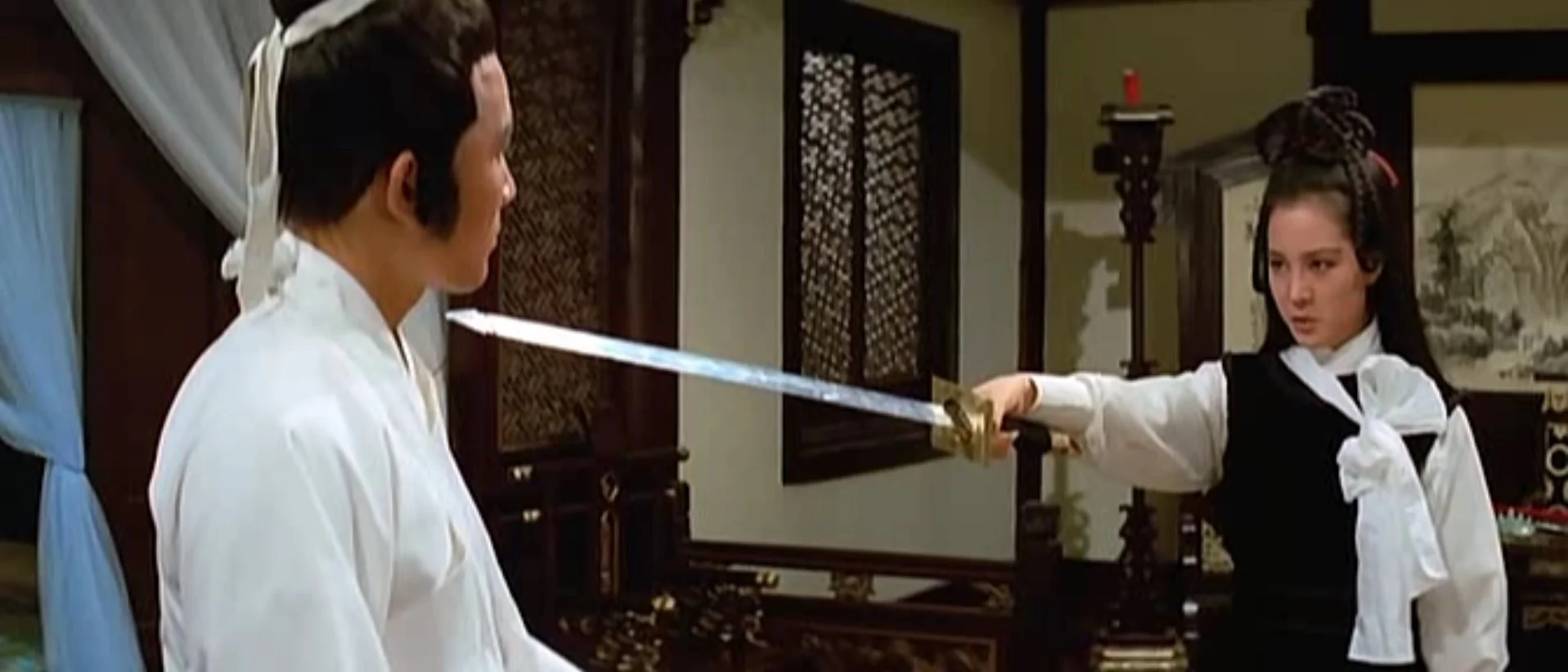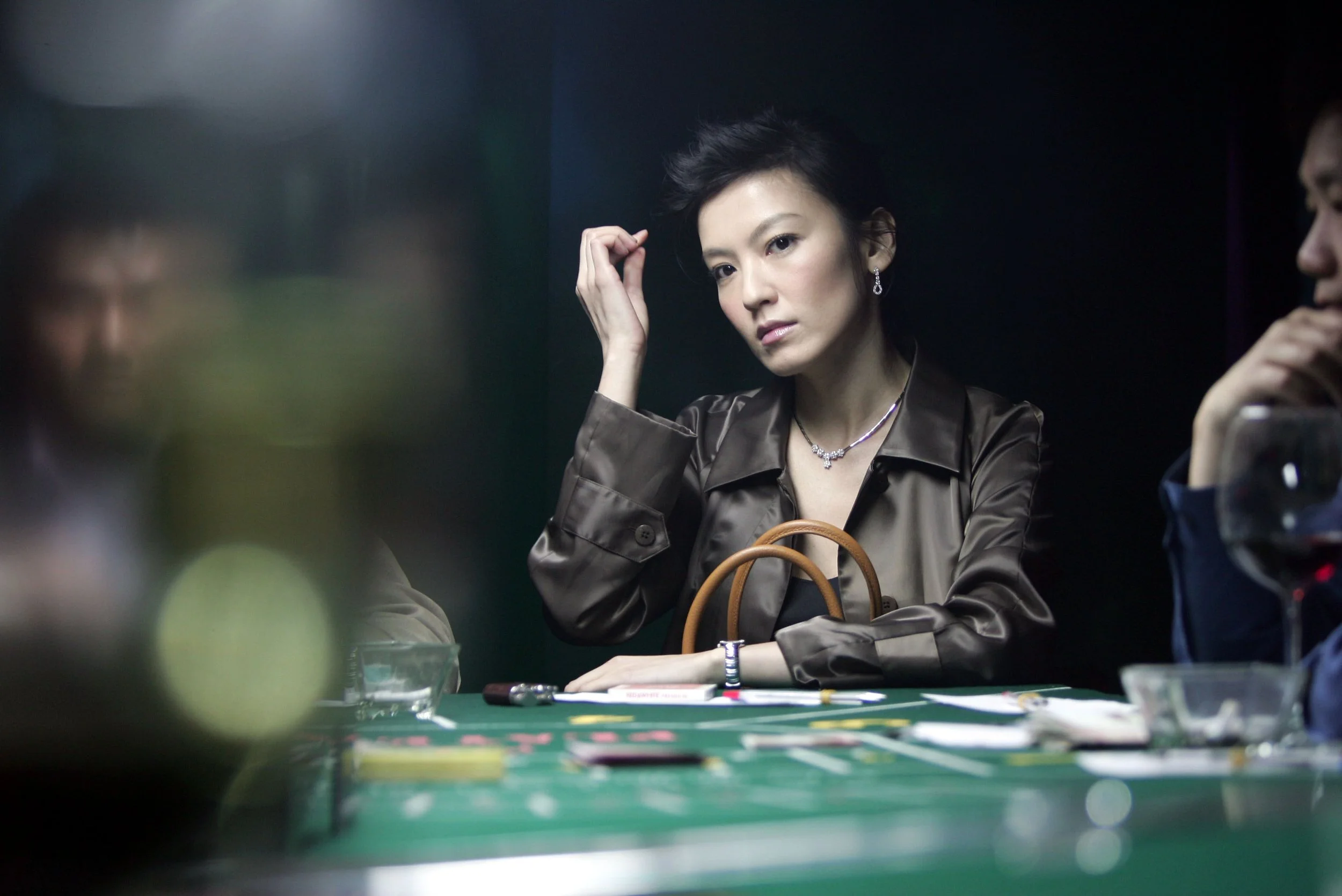In 2021, I watched 508 movies. This is not healthy or wise behavior, but this was not a healthy or wise year. In order to extract at least some value out of those 1000ish hours, I’m going to write about it.
Hong Kong was the fifth and final “country” i watched enough movies from (50) to constitute its own entry. Most, but not all, of what I watched fell under the broad categories of either crime or wuxia, but it never felt quite as limiting as my similarly narrow focus on Japanese films did. The wuxia genre specifically is a broad one, with room for everything from mindless gore parties to mournful romantic elegies.
As with all these articles, this is a lot of article, and I won’t be offended if you skip ahead. There’s a Top 10 list at the bottom if you just want the best of the best, but before we get to that, here’s a few of the actors, actresses, and directors that made the biggest impressions on me.
MOST WATCHED ACTORS
7 MOVIES: Simon Yam
Naked Killer (1992), The Mission (1999), Gun Chung (2007), Sparrow (2008), The Thieves (2012), Cold Eyes (2013)
Rarely does an actor who does so many action movies play such different roles between them, let alone play them so well. Just in the six listed, we’ve got him as a whimsically fun protagonist (Sparrow), a laughably out of his depth protagonist (Naked Killer), warm-hearted mentor (Gun Chung), merciless villain (The Mission), aging love interest (The Thieves), and winking cameo (Cold Eyes). If those all feel too generic, let’s instead say, in the same order, dancing pickpocket photographer, impotent gun-phobic cop in love with a lesbian assassin, playfully avuncular surveillance genius, vindictively businesslike consigliere, sentimental old master thief unexpectedly finding love late in life, and living, breathing reminder that the film you’re currently watching is a remake of that one where he was the playfully avuncular surveillance genius. A lot of these blurbs end up praising an actor’s range, but Yam is unique in that he’s able to apply that full range even within the confines of (mostly) action-packed crime-thrillers.
8 MOVIES: Lam Suet
A Hero Never Dies (1998), The Mission (1999), Wu-Yen (2001), One Night in Mongkok (2004), My Kung Fu Sweetheart (2006), Gun Chung (2007), Sparrow (2008), Drug War (2012)
Lam Suet works—at least in the movies I saw him in this year—in an even narrower lane: in six out of eight movies I saw him in, he played some kind of criminal or another. His rank varies—the listed films see him as everything from mob boss to flunky to black market huckster to hitman—but his presence doesn’t; he’s one of those rare actors with the ability to command the screen without speaking much, or at all, relying on presence, charisma, body language, and the most expressively craggy face this side of late-stage Jean Gabin to get his character across. We have a great sense, for instance, of Fat Hippo* in Gun Chung, even though the character barely speaks. He likewise has the least dialogue of any of the five killers in The Mission, though by the end we understand him better than several of his compatriots. This is not to suggest that he can’t talk when the part calls for it though; his garish, motor-mouthed, henpecked husband of a hustler in One Night in Mongkok can’t seem to stop talking, and steals every scene he’s in, as does his exhaustively pathetic and mumbly would-be suitor in My Kung Fu Sweetheart. He doesn’t always have that many scenes—he’s a bit player as often as he’s a lead—but usually sneaks away with them either way. Just a consummate professional of a performer who can do an awful lot even when given very little.
*Unfortunately his films do have a nasty habit of making his weight a focal point of his characterization, both those on this list and elsewhere.
8 MOVIES: Tony Leung Chiu-wai
My Heart is That Eternal Rose (1989), Seven Warriors (1989), Hardboiled (1992), Butterfly & Sword (1993), Chungking Express (1994), Tokyo Raiders (2000), Infernal Affairs (2002), Shang-Chi and the Legend of the Ten Rings (2021)
Sadly, I don’t think there’s an actor I came into this year already loving whose movies disappointed me more often than Tony Leung Chiu-Wai’s did. This is zero percent his fault, but Shang-Chi mostly stunk even by increasingly stale MCU standards (and did Leung no favors, saddling him and Michelle Yeoh with gallons of onerous exposition), Seven Warriors and Tokyo Raiders both dramatically underachieved given their respective casts and premises, and Hardboiled, while still very fun, was not *quite* the masterpiece I thought I remembered it as from my teen years*. Chungking Express of course is still a classic, and Leung’s classic in it, but I’d seen it before, and if I’m being brutally honest Leung’s half of the movie isn’t quite as good as Brigitte Lin’s. That just left three movies to impress me, but Infernal Affairs, while the superior film (and I wish I’d seen it first), had already had its twists and turns largely spoiled for me by The Departed, and My Heart is That Eternal Rose seemed like it was probably fantastic if you could run down a better subtitle track for it than the janky, likely Google translated one I had. Butterfly & Sword was at least a ton of batshit fun, but it’s much more Yeoh and Donnie Yen’s movie than it is Leung’s.
*Mostly because I was actually remembering A Better Tomorrow and had never seen Hardboiled before to begin with. Granted, “not as good as teenage Nick thought A Better Tomorrow was” is hardly damning criticism, but still.
That all said, Leung was magnificent throughout, in parts ranging from the sublime (Chungking, Infernal) to the inane (Shang-Chi, Tokyo Raiders), and while admittedly none of these were quite In the Mood For Love or Hero or 2046, well, few movies are, and Leung was already in three of them. It’s a credit to Leung’s talent and versatility that he’s just as good in crap as he is in magic, and even if I didn’t love some of these movies, I usually loved his chunks of them.
MOst Watched Actresses
6 MOVIES: MAggie Cheung
As Tears Go By (1988), Moon Warriors (1992), The Heroic Trio (1993), Executioners (1993), Green Snake (1993), Irma Vep (1996)
And speaking of people who made three movies as good as In the Mood For Love, Hero, and 2046… Cheung fared a lot better for me this year than her aforementioned co-star, appearing in four spectacular movies, a fifth pretty good one, and only one relative disappointment. All six of the films have something in common, namely that they are big, weird, idiosyncratic swings. So is every other Maggie Cheung film I can remember seeing. I’m sure she’s made some conventional films as well but she sure seems to prefer getting real weird with it, and that’s led her into a lot of really memorable movies. Just on this list we’ve got a neon pulp superhero acid trip that shames the Western comic book movie canon, a dystopian sequel to that movie that ignores basically everything that made the first one so much fun in favor of making the second even weirder (admittedly to its detriment), an early Wong Kar-Wai outing that isn’t as good as their later work together but still good enough that you can see the signposts of where they’re headed, a post-modern portrait of movie making and displacement in which she plays the role of *checks notes* superstar Hong Kong actress Maggie Cheung, a romantic wuxia tone poem prominently involving a killer whale, and a horned-up pastel parable of love, sex and spirituality.
Cheung’s got a real gift for bringing deep, evocative human emotion into every character she inhabits, even when that character is, say, a giant snake demon or a leather-clad post-apocalyptic bounty hunter, and it helps elevate her films to a higher emotional register than they’d reach without her. Her movies are lucky to have her, and we’re lucky to have her movies.
7 MOVIES: Michelle Yeoh
Magnificent Warriors (1987), The Heroic Trio (1993), Executioners (1993), Butterfly & Sword (1993), The Mummy: Tomb of the Dragon Emperor (2008), Gunpowder Milkshake (2021), Shang-Chi and the Legend of the Ten Rings (2021)
I’m so glad that this year we finally got Everything Everywhere All At Once because historically American films have done a pretty shit job of realizing what they have with Michelle Yeoh. There are a few exceptions, but they’re badly outnumbered by duds like The Mummy: Tomb of the Dragon Emperor or Shang-Chi, and mediocre missed opportunities like Gunpowder Milkshake. Yeoh generally shows up and does Yeohman’s work (sorry) in these stinkers, but they’re far from the best use of her talents. Hong Kong has historically done a bit better by her, fortunately, and three of the four Hong Kong films of hers I saw this year fall into that category. Magnificent Warriors smartly realizes that the best way to improve on Indiana Jones is to replace Harrison Ford with Michelle Yeoh, Butterfly & Sword presages Crouching Tiger with the realization that you can cast Yeoh for both her martial arts skills and her prodigious dramatic talents at the same time (while also allowing her to participate in the film’s ambient silliness), while Heroic Trio (and its lesser sequel, Executioners) paints her as the name-in-lights big budget marquee action superstar she always should have been.
Yeoh has stood alone for over forty years as someone who is both one of the greatest screen martial artists of all-time and an Oscar-caliber thespian, and it’s frankly criminal that films like Everything Everywhere All At Once or Crouching Tiger are the exceptions rather than the rule for her career, but at least there’s stuff like Heroic Trio and Butterfly & Sword to help bump up the batting average.
8 MOVIES: Cecilia Cheung
Tokyo Raiders (2000), Wu Yen (2001), Second Time Around (2002), Running on Karma (2003), The White Dragon (2004), One Night in Mongkok (2004), My Kung-Fu Sweetheart (2006), Dangerous Liaisons (2012)
I can’t say that Cecilia Cheung made a ton of great movies, but she made a ton of interesting ones, and when she was in movies somewhat less than great—whether intriguing concepts that couldn’t quite make it over the executional hill or full-on trash—she was always the most interesting piece of the puzzle. She has considerable comic chops, able to treat even the most ridiculous material with absolute sincerity; this serves her equally well in nonsensical farces (as a mischievous, impossibly horny gender-bending fox spirit in Wu Yen, a heroic but naive martial artist in The White Dragon, & an even more heroic and even more naive martial artist in My Kung-Fu Sweetheart) and otherwise at least semi-serious movies with fantastical elements (as an impossibly upbeat but cosmically doomed policewoman in Running on Karma, an underutilized knockoff Bond girl in Tokyo Raiders, & a suspicious and overwhelmed cop grappling with the consequences of a suspect’s time loop in Second Time Around). Some of those films are better than others (namely Wu Yen and Running on Karma) but all of them benefit tremendously from Cheung’s authenticity in the face of absurdity.
Her two most serious films I saw are both otherwise magnificent pictures that perfectly utilize Cheung, but are each marred by a single considerable wart. The first, One Night in Mongkok, is a gritty, compelling, and slightly overlong crime opera that takes a dramatic and unnecessary third act detour into gratuitous sexual assault that adds nothing but subtracts plenty. Cheung plays an energetic and surprisingly optimistic call girl guiding the protagonist through Mongkok’s underworld, and she’s cleanly the best performance in a film with a lot of very strong performances. Dangerous Liaisons, meanwhile, transposes the familiar story to early twentieth century Shanghai, adds a significant revolutionary subplot, and lavishes in gorgeous period art direction and costumes, before badly botching the finish, removing its most tragic element, and fumbling the final scene for its most important male character… but none of that has much to do with Cheung, who is a match for anyone in the villainous Metreuil role, following in the footsteps of Moreau and Close with the same incandescent combination of poise and vitriol that made their performances so timeless, while adding a vindictive, manic glee to the proceedings. It’s the best performance I’ve seen from Cheung, who has no shortage of killer performances to her name, and it saddens me that it was more or less her last. Here’s hoping she’s got a comeback in her.
OTHER STANDOUT ACTORS & ACTRESSES WORTH MENTIONING:
Anthony Wong, Angela Mao, Andy Lau, Lily Ho-Lili, Ivy Ling Po, Anita Mui, Sammo Hung
MOST WATCHED DIRECTORS
4 MOVIES: Lo Wei
Angel With the Iron Fists (1967), The Invincible Eight (1971), The Comet Strikes (1971), Vengeance of a Snow Girl (1971)
The Invincible Eight assemble, and they brought plenty of cutlery.
Lo Wei’s most famous films involve Bruce Lee and Jackie Chan, but the ones I watched this year more revolved around Lily Ho, Angela Mao, Nora Miao, and Ching Lee. It would be a significant stretch to call these feminist works—even the most powerful women tend to end up either defeated by or reliant on men—but they nonetheless gave gifted actresses strong, central roles that let them do a lot more than the helpless girlfriend parts that largely dominated the genre at the time. Vengeance of a Snow Girl, a vicious yet sentimental revenge fable, is easily the best of the four and was one of the last cuts from the Top Ten list at the end of this article, but they all share a kind of madcap camp glee that leaves you with the impression that at no point was the word “no” uttered in pre-production, shooting, or editing. The Invincible Eight feels like a kung-fu Avengers movie freed of the burden of franchise building or continuity, coming up with eight interesting heroes and simply letting them beat up bad guys together until the film runs out of runtime (or budget). Angel with the Iron Fists is a pleasantly diverting Bond pastiche that hobbles itself with a commitment to a unnecessary male lead to pair with the titular angel, but still boasts gorgeous production design and some charming action beats (and an overqualified central performance by the historically underrated Lily Ho). The Comet Srikes combines wuxia and horror to memorable effect even if it could probably have done with two or three fewer twists down the stretch. All in all, these Lo Wei films aren’t perfect, but neither are they time-wasters, and none of them are content to be “ordinary” martial arts films, insisting on pushing the limits of the genre, and I’m glad I watched them.
4 MOVIES: Kao Pao-shu
Lady With a Sword (1971), Blood of the Dragon (1971), Bandits, Prostitutes and Silver (1977), The Jade Fox (1979)
These boots are made for choppin’, and that’s just what they’ll do, one of these days these boots are gonna chop all over you.
When you think of classic seventies wuxia from Golden Harvest and the Shaw Brothers, you likely think of any number of iconic masculine stars and directors. Kao Pao-Shu crashed that boys’ club in an era and area code short on female directors, turning in several of the best kung fu pictures of the decade. Her films usually revolve a strong, dangerous woman—she doesn’t seem to mind much whether they’re hero or heavy—though Blood of the Dragon is a notable exception. On its surface it’s a bloody siege movie, but it ultimately has more in common with Rio Bravo or Dragon Gate Inn than something like 300. There’s a real emotional and philosophical core the movie finds a lot more interesting than the (copious) bloodshed around it, though that bloodshed is magnificently well-executed. At her best, Pao-Shu was capable of almost King Hu-like acts of visual poetry, and Blood of the Dragon is her at pretty close to her best. Lady with a Sword is even better, and probably the best use of Lily Ho in her entire career. Bandits, Prostitutes and Silver is a bit weaker narratively than those two masterworks, but it delivers on its title and gives you Angela Mao as a bandit queen with razor-sharp buzz-saw murder shoes, so it’s hard to complain about. Much as Blood of the Dragon conjures Hawksian Western tropes, Bandits feels often like a kung-fu Spaghetti Western, right down to lifting the score from The Big Gundown. Finally there’s The Jade Fox, which features Pao-Shu in front of the camera as well as the main antagonist, and delivers a killer third act after a fucking about for a bit too long getting there. All told, Kao Pao-Shu has become one of my favorite wuxia directors, able to imbue her works empathy, idiosyncrasy, and depth without sacrificing any of the bloodshed, choreography, and visual flair that defines the best of the genre.
8 MOVIES: Johnnie To
The Heroic Trio (1993), Executioners (1993), A Hero Never Dies (1998), The Mission (1999), Wu Yen (2001), Running on Karma (2003), Sparrow (2008), Drug War (2012)
A pair of rival assassins put their guns away to share some good wine with their girlfriends and favorite bartender in A Hero Never Dies.
Johnnie To was my second-most watched director overall for 2021, and it’s not hard to see why. He’s most associated with heroic bloodshed and/or gangster pictures (A Hero Never Dies, The Mission, Drug War), and he makes those as well as anyone, but he’s also got the chops to turn in near-perfect super hero flicks (The Heroic Trio), romcoms (Wu Yen), and philosophical Buddhist dramedies (Running on Karma). He did have one admitted misfire, Executioners, the sequel to Heroic Trio that trades the anarchic creativity of the first installment for bloated mythology, a grimier aesthetic, and tedious world-building that never really pays off. Finally there’s Sparrow, which defies easy genre categorization but follows the adventures of a trio of musically inclined pickpockets and delighted me to no end. To is able to so effortless jump or blend genres because whatever else his films do, they always respect their characters’ internality and motivations first. Even Heroic Trio, which looks like an unholy Joel Schumacher/Wes Craven hybrid and involves hunchbacked baby-murderers, invisible cloaks, and the most triumphantly deranged final battle of any superhero film ever made, is grounded by three lead characters with clearly defined internal conflicts and specific, deeply held beliefs and codes. Wu Yen is an abject farce but even there all three characters want something very badly and behave exclusively in ways that authentically reflect those wants. To never sells out his characters for a gag or a plot point, which incidentally is why he can also get away with movies that have no gags and very few plot points like The Mission.
His films are a bit of a fixture in the Top 10, so we’ll dig a little deeper there.
BOTTOM OF THE BARREL
Only one real turd from Hong Kong this year.
Naked Weapon - Naked Killer was a colorful apocalypse of stylistic excess, voguing assassins, and queer indulgence. Its successor, Naked Weapon, trades all that in for lackluster action, interminably dull plot, and some gratuitous sexual assault. An absolute snore of a movie that never rises to the level of interesting but occasionally engages purely by upsetting.
OLD FAVORITES REVISITED
Only re-watched one Hong Kong movie this year, but it’s a doozy.
Naked Killer (1992)
Who needs substance when you’ve got this much style?
A pulp-kitsch acid trip. Problematically feminist. The gayest movie you’ll ever see about an impotent cop who vomits whenever he tries to use his gun falling in love with a lady assassin. The lady assassin is queer, and in good company; four of the five most important characters are queer lady assassins, but she is not wholly disinterested in the cop, it’s just that she’s more interested in glorious pastel palaces, an intoxicating game of one-upsmanship and flirtation with another of the assassins, and voguing at every opportunity. This is a movie where posing is more important than plot, and aesthetic is always ahead of action. It’s a delirious, kinky, campy cacophony of sex and violence and color, and it’s a movie that has to be seen to be believed, and then seen again to convince yourself it wasn’t merely a mad, drug-fueled dream you had the the night after a rave, a murder, or a murder rave.
The Top Ten
#10: Duel for gold (1971)
I don’t remember who Ivy Ling Po is looking at in this scene, but she’s right to be suspicious no matter who it is.
Chor Yuen’s Duel for Gold combines my love of treacherous heists and double-crosses with my love of punching and swordfights. That combination is so specifically direct marketed to the cinematic pleasure-sensors in my brain I probably would have dug it even if it stunk. It does not stink. It’s well cast, with Ivy Ling Po and Lo Lieh especially as standouts, and beautifully directed. There’s a lot of chaos and silliness in this movie but it’s never confusing or imprecise, and at a storytelling level there’s a real glee to both the plentiful sudden betrayals and the indignant vendettas they inspire. Just an absolute blast of a film, combining two of the best pulp genres to ecstatic effect.
#9: Infernal Affairs (2002)
Andy Lau and Tony Leung Chiu-wai enjoy a little alone time in Infernal Affairs.
Andrew Lau directed the top movie on my Korean list, and he makes another appearance here co-directing with Alan Mak. I wish I’d seen this before The Departed, a remake that follows the plot almost to the letter and adds little of substance… nonetheless, having seen that film took some of the bite out of the twists in this one. It’s a credit to the cast and crew that the movie continues to sing even robbed of its tension and surprises. Andy Lau, Tony Leung Chiu-wai, Eric Tsang, and Anthony Wong run rings around their successors (Matt Damon, Leonard DiCaprio, Jack Nicholson, and Martin Sheen respectively) by not running at all. The American versions plays to the cheap seats with BIG LOUD ACTING PERFORMANCES while this version is more interested in quiet, thoughtful interactions between two men talking about stereos, and while the tension in The Departed that relies largely on “what’s going to happen to him?!” is still present, Infernal Affairs deepens it with the much more interesting tension of “how does he feel about it?” An excellent, twisty crime thriller that’s since been famously imitated but never duplicated.
#8: Chungking Express (1994)
If you look closely, you’ll see Takeshi Kaneshiro’s glasses are all half-empty. Brigitte Lin’s glasses, meanwhile, are full of Brigitte Lin, and secrets.
Wong Kar-wai has made a lot of movies I love and a couple I can’t stand. Chungking Express is one of the former, a deeply sincere paean to connection, and absence, and yearning, and most of the other themes Kar-wai would revisit in Fallen Angels, In the Mood for Love, and 2046. If it has a fault, it’s that it plays the “manic pixie dream girl” trope about as straight as you can play it, but when she’s played with such verve by Faye Wong we understand why so many filmmakers keep going back to the trope long after its sell-by date: when you’ve got the right actress, in the right story, and you make sure it’s actually her story rather than casting her simply as love interest or plot-propellant, it works like gangbusters. And yet, for all that, I might like the half of the movie that doesn’t have her in it even better, with Takeshi Kaneshiro and Brigitte Lin as two desperate-in-different-directions strangers who cross paths in the sad, smoky, rainy streets of the underworld. It doesn’t really matter which story you prefer, of course. The magic of Chungking is the way it positions them as companion pieces and foils and universally specific. You get two great movies for the price of one, and they make each other better.
#7: Moon Warriors (1992)
Anita Mui and Maggie Cheung take a brief recess from navigating thorny emotional entanglements to stab some assassins.
Moon Warriors presages the era of Crouching Tiger and Hero by a solid decade, but it bears mentioning in their company. Like those later (excellent) films, Moon Warriors is a melancholic romantic drama disguised as an action movie, with four intensely likable people put into one another’s orbit at the worst possible time in the worst possible ways, and yet finding ways to fall in love—both romantic and platonic—in defiance of their fraught circumstances. It wears its intentions on its sleeve; it may be directed by action legend Sammo Hung, but the core cast isn’t made up of martial artists. Andy Lau, Maggie Cheung, Anita Mui, and Kenny Bee are all highly decorated dramatic actors, and while they’ve all dabbled in wuxia, none of them are action stars in the tradition of Bruce Lee or Jackie Chan or Sammo himself, who bet that his choreography and action chops would be enough to mask their limitations as fighters. He won that bet. The action is very good, and the performances, heartbreak, and wistfulness are even better.
Also, one of the main character’s best friend is giant killer whale, so it’s got that going for it, too.
#6: The MIssion (1999)
Anthony Wong, Francis Ng, Lam Suet, Jackie Lui Chung-Yin, and Roy Cheung have their backs against the walls and/or pillars in The Mission.
The Mission is a crime story with little story and an action movie without much action. It’s also exceptional. Five crooks are tasked with protecting a crime lord. Some of them already know each other, other don’t, but it doesn’t matter. They all share a similar professionalism, and they fall naturally into a comfortable, mostly silent rhythm with one another. That bond forms quickly and is almost immediately tested when one of them is asked to betray another, and that quandary is likewise approached with mutual respect and unflinching professional ethics.
The shootouts, when they come, are not what you would see in any other action movie released in 1999. The style du jour at the time was hyper-kinetic, with lots of running and jumping and diving and big fuck explosions. This movie doesn’t have much of that sort of thing. It’s more interested in craft, both from the crooks and from To himself. The best gunfight in the movie involves almost no movement, no dialogue, and absolutely no explosions, relying instead on music, tension, pace, perspective, and rhythm. It’s one of the most compelling gunfights of the decade. I don’t think any of the five main characters—all participants—take more than a step or two during it.
That minimalist approach extends throughout the movie, telling its story not with big speeches and kinetic action, but with quiet frowns and unspoken codes and long uncomfortable silences, but always craft, in abundance, from characters and crew alike.
#5: Shanghai Grand (1996)
Leslie Cheung and Andy Lau take a moment to catch their breath between mob hits and melodramas.
Nothing hits quite like a big, fancy, over-dressed historical epic. Shanghai Grand is exactly that kind of movie, telling the story of two WWII-era Shanghai gangsters and the woman who comes between them with lavish period sets and costumes, elaborate shootouts, and more than a touch of class. Andy Lau and Leslie Cheung—two of Hong Kong’s finest actors by my admittedly under-informed estimation—are the gangsters, and their relationship is the central one. They begin as fire-forged friends until fate, as it is wont to do, contrives to tear them apart.
It is not simply the conflict over the woman (Ning Jing)—which the movie smartly plays as an emotional tragedy rather than a violent dick-measuring contest—that seeks to divide them. There is also the question of politics, both criminal and national, and a mysterious stranger played by superb Korean actor Jung Woo-sung who has his own angle on both.
The resolution, when it comes, is both inevitable and unexpected. Each man is true to himself and loyal to his friend, and the climax is constructed to pit those two fundamental but contradictory truths against one other. The collision is wrenching, inspired, and operatic, but never false.
All of this makes the film sound dreadfully serious, I know, and it can be. But it also has room for a femme fatale assassin who kills her targets by luring them into her bed, which conceals a gigantic, hungry python, so there’s a bit of something for everyone to be enjoyed here.
#4: The Heroic Trio (1993)
Michelle Yeoh, Maggie Cheung, and Anita Mui take the superhero genre on a badly needed acid trip.
This movie is so much damned fun that its capacity to enchant is a plot point in another excellent film I saw this year, Irma Vep, in which a French movie director sees The Heroic Trio and decides to move heaven and Earth to put Maggie Cheung in his movie. It’s easy to see why. She’s the most incendiary performance in a movie with a lot of firepower—she’s joined not just by fellow heroines Michelle Yeoh and Anita Mui, but by veteran Hong Kong superstars like Anthony Wong and Damian Lau—as the hedonistic, streetwise mercenary Thief Catcher.
But Cheung (and Yeoh, and Mui) is only the tip of a delightful iceberg here. The production design is phantasmagorical, combining Schumacher-esque metro neon with the kind of over-boiled sense texture and atmosphere you get from the very best grimy creature features. The story is unhinged, chaotic but complex. The action scenes are invariably electrifying, and the cast has enough dramatic chutzpah to sell the should-be ridiculous story beats in between.
It’s an exercise in glorious excess, with baby murdering sewer-cults and long-lost kung-fu sisters and tortured romances and evil hunchbacks and a final battle that goes weirder and harder than any superhero film before or since. To’s direction is able to meld all that hot nonsense into a cohesive narrative that flies by, and the film’s feverish momentum just keeps building and building, dragging you deeper and deeper into To’s kung-fu fever dream.
It’s such a specific piece of work, that feels wholly new and unique and itself even thirty years later, a stark contrast to the focus-grouped cookie-cutter crowd pleasers that dominate the genre today. And don’t get me wrong, the modern superhero movie has its place. It’s just that that place is further down any list with The Heroic Trio on it.
#3:Intimate COnfessions of a Chinese Courtesan (1972)
Lily Ho and Betty Pei Ti share a tender moment between murders.
Have the gender politics of Intimate Confessions of a Chinese Courtesan aged perfectly? No, not by a longshot. From a modern point of view, this movie starts off on the wrong foot as an entry in the “rape and revenge” genre, and while it never comes out and declares it, it likes to imply that the villain’s lesbianism is part of what makes her a villain.
On the other hand, relative to your average Shaw Brothers slaughterhouse it’s positively progressive. The two most central characters are queer women, and take violent retributions against their abusers and oppressors. Like Female Prisoner 701 Scorpion or Okatsu, it uses the trappings of an exploitation film to smuggle in some two-fisted feminism, and palpable rage against the patriarchy.
That is not to say that Intimate Confessions is a feminist masterpiece or that it should be forgiven its problematic tropes or scenes, but it is to say that if those elements aren’t deal breakers for you, there’s a lot to love here, too. The set design is gorgeous, elegant silks contrasted against unforgiving granite. The story is better, and more complex, than your average wuxia yarn, focusing not merely on the quest for revenge or self-improvement but in the complicated, messy, psycho-sexual relationship between the villainous—or at least antiheroic—madam (Betty Pei Ti) and the latest addition to her roster (Lily Ho). The characters begin as enemies, and Betty is surely bad news, but Lily is at least partially seduced by the power she wields, and what began as reluctant supplication becomes something much thornier. Lily Ho strikes the perfect ambiguous notes throughout, and her chemistry—both sexual and otherwise—with Betty Pei Ti simmers. Pei Ti, for her part, is the film’s North Star, and her absolute control of the tone is the secret sauce that makes the movie as good as it is. She’s kitsch without ever being camp, arch without ever being awkward, and sincere without ever veering into self-serious. She’s simultaneously a larger-than-live supervillain and a tragic, if deeply problematic, romantic foil.
That may sound like the makings of an excellent erotic drama, and it has a lot of scenes that would be at home in one, but it’s also a blood-drenched kung fu epic, and it excels at being that, too. The final battle particularly is a masterwork, artfully weaving beautiful action choreography in which the the long-simmering payoffs to every character dynamic and arc in the film.
It’s a strange movie to recommend, and it won’t be for everyone by a long shot, but if you can meet it on its level it’s one of the most captivating and haunting revenge stories in the wuxia canon.
#2: Lady With A Sword (1971)
James Nam Gun-Fan probably should have read the title the movie he was in before he set about pissing off Lily Ho.
Lily Ho made a lot of great action pictures, but Lady With a Sword is her crowning achievement. Ho seems to invite frequent comparisons to Meiko Kaji, which is a comparison that both makes sense—both made their share of bloody feminist revenge stories—but is also deeply unfair to both women. Kaji casts too long of a shadow for anyone, Ho included, but her movies asked different things of her than Ho’s do. Where Kaji’s heroines were often implacable, relentless killing machines, Ho’s films ask her to bring more warmth, humor, and vulnerability.
Lady with a Sword is no exception, and would be a tonal tire fire if Ho wasn’t up to the task. Half the film is a deadly serious revenge epic, as the swordswoman cooly assassinates those responsible for her sister’s death… but the other half alternates between warm, broad comedy as she tries to raise her orphan nephew mid-rampage, and sharper dramatic irony as she infiltrates the social circle and eventually home of the man she’s after without him realizing nearly how much trouble he’s in. Ho nails it in both tones, and plays it all with enough conviction that they don’t feel mutually exclusive.
That Ho’s best performance came in a movie directed by a woman (Kao Pao-Shu) is probably not a coincidence. This is the story of a woman underestimated, and the endless men who fall to her blade may as well have been named after the various male directors who’d squandered her in nothing love interest parts. Pao-Shu is a gifted action director as well, and she makes sure that Lily’s heroine kicks at least as much ass as a Jimmy Wang Yu or Damian Lau in their own bloody star vehicles, and with more style. The combat here is fast-paced yet operatic, frenetic yet finely-tuned, and shot with a supremely confident eye that knows exactly what to show, and when, and why.
It’s not quite a perfect film. There’s a character late in the movie who feels like a studio note, an underdeveloped male presence who jumps in on the side of the heroine during the final battle and steals perhaps a little too much shine from the woman we’ve spent all movie investing in. The child actor playing her nephew is exactly as good as nearly every other child actor, which is to say not remotely.
But these are champagne problems; by the time you notice them you’re already so drunk on everything else the movie does so well you can’t really complain. Lady With a Sword is one of the best kung fu films I’ve ever seen, and it’s a triumphant showcase of the historically underrated Lily Ho’s tremendous star power and versatility.
#1: Sparrow (2008)
Kelly Lin plays an extremely good game. Oh, and look, apparently she plays cards, too.
Sparrow is one of those special films that is not about what it’s about. On its surface, it’s a film about four pickpockets who meet, fall for, and ultimately aid a mysterious femme fatale. But what it’s really about is beauty, in all its forms.
First and foremost, the beauty of Hong Kong itself. The city is shot as lovingly here as in any of Wong Kar-Wai’s broken-hearted fables. The lead pickpocket (Simon Yam, never better) has a photography hobby, periodically stopping to take in the city in its splendor, but even when the film isn’t consciously drawing attention to it Hong Kong is shot with such a loving, worshipful touch that it almost feels like we’re being let in on a secret we aren’t supposed to know, that paradise exists on Earth in a city of limited space and unlimited beauty.
There is also the beauty of friendship, and of love, subjects the movie visits in sharp bursts of intensity but never lingers on. The various pickpockets clambering over each other on a single bicycle with the carefree smiles that only come out between lifelong friends, for instance. Or a scene in a car, with no dialogue, in which a man and a woman share a cigarette. Nothing explicitly sexual happens between them, but what does happen is more arousing than most movie sex scenes can even dream of being.
There is the obvious beauty of the cast themselves, with Kelly Lin believably so gorgeous that four thieves would all put their lives on the line for her after only a single meeting, and Simon Yam dialing down the wattage on his marquee macho man sex appeal in favor of a more playful, sentimental kind of sexy.
There is the beauty of comedy, and farce, and the way silly situations can build upon themselves and escalate into almost out-of-body delight. This film is not a comedy, but it is deeply funny, and the sequences in the elevator and the massage parlor were some of the biggest laughs I had all year.
There is the beauty of pain, and change, and wanting what you feel you must have but may not deserve. Lin’s conflict is not a simple one, and the way she grapples with it is painful in ways both specific and familiar. The pickpockets have similar questions they must answer, about what you owe to whom, and why, and whether you owe more to yourself.
The beauty of craft, and process, as we learn how the pickpockets do what they do, and how carefully they must do it.
The beauty of music, and the way the world moves just a little easier if you can step to a beat you like.
And then, finally, there is the beauty of movement. Director Johnnie To of course also made The Mission, which made a meal out of the absence of motion, but almost as if to prove that was a dramatic choice rather than a technical one, here To directs such beautifully coordinated set pieces of movement and music that ascend to the level of visual poetry.
The climax of the film brings all these different kinds of beauty together in one of the most striking sequences I’ve ever seen. A Hong Kong crosswalk, drowning in rain and human mass. Our beautiful cast, underneath their umbrellas, acting in pursuit of either their interests or someone else’s, friends and lovers and enemies all moving in a balletic battle not of fists and feet, but of eyes and thoughts and philosophies and doubts.
It’s one of the most aesthetically beautiful sequences ever caught on film, and more importantly than that, it’s the perfect grace note for Johnnie To’s most beautiful movie to end on.
APPENDIX: THE WHOLE DAMN LIST
Here’s all 50, for the curious. Arranged by star rating. Anything over 3.5 is worth your time, and anything over 4 is really worth your time.
★★★★³/⁴
Transcendent
Sparrow (2008)
★★★★¹/²
Must See
Lady with a Sword (1971), Intimate Confessions of a Chinese Courtesan (1972), The Heroic Trio (1993)
★★★★¹/⁴
Excellent
Shanghai Grand (1996), The Mission (1999), Chungking Express (1994), Infernal Affairs (2002), Moon Warriors (1992)
★★★★
Superb
The 14 Amazons (1972), Vengeance of a Snowgirl (1971), Running on Karma (2003), Duel For Gold (1971), Naked Killer (1992)
★★★³/⁴
Great
Green Snake (1993), The Black Tavern (1972), Blood: The Last Vampire (2008), Magnificent Warriors (1987), My Kung Fu Sweetheart (2006), My Heart Is That Eternal Rose (1989), Hard Boiled (1992), Butterfly & Sword (1993), One Night in Mongkok (2004)
★★★¹/²
Very Good
Second Time Around (2002), A Hero Never Dies (1998), The One-Armed Swordsman (1967), The Lady Professional (1971), Wu Yen (2001), Drug War (2012), The Blade Spares None (1971)
★★★¹/⁴
Good
The Comet Strikes (1971), As Tears Go By (1988), The Venus Tear Diamond (1971), Angel With the Iron Fists (1967), Finger of Doom (1972), My Young Auntie (1981)
★★★
Fun But There’s Some Flaws
Executioners (1993), Bandits, Prostitutes and Silver (1977), The Invincible Eight (1971), The White Dragon (2004), Blood of the Dragon (1971), Seven Warriors (1989), Return of the One-Armed Swordsman (1969), , Peking Opera Blues (1986), Gun Chung(2007)
★★³/⁴
Flawed But There’s Some Fun
The Millionaires' Express (1986), Deadly Duo (1971)
★★¹/⁴
Part Of It Works, Most Of It Doesn’t
Tokyo Raiders (2000), Thunderbolt (1973)
³/⁴★
Terribad
Naked Weapon (2002)
